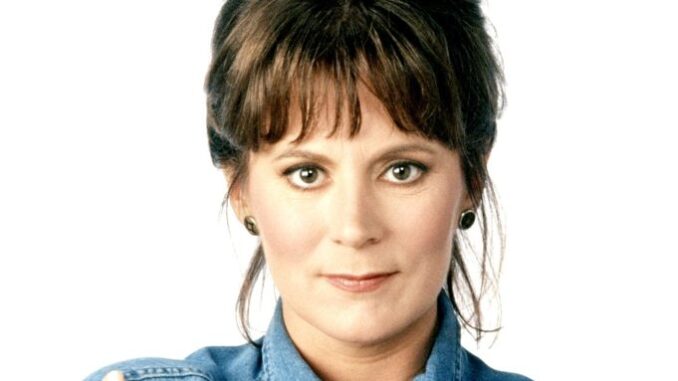
The Unseen Blueprint: Why Patricia Richardson Turned Down the Home Improvement Reboot
The flickering glow of a television screen, a familiar theme song, and the comforting banter of the Taylor family: for millions, Home Improvement was more than just a sitcom; it was a blueprint for suburban life, replete with power tools, sage advice, and the ever-present, eye-rolling wisdom of Jill Taylor. So, when whispers of a reboot began to circulate, a collective hum of anticipation rippled through the pop culture landscape. Yet, amidst the excitement, one crucial element remained steadfastly absent: Patricia Richardson, the very heart of the Taylor household, repeatedly declined to return. Her refusal wasn't a rejection of the past, but rather a thoughtful, nuanced defense of its integrity, a testament to her artistic principles, and a poignant commentary on the often-dubious nature of nostalgia’s siren song.
At the core of Richardson’s decision lay a deeply practical, yet profoundly artistic, concern: the script. Unlike the golden age of sitcoms where character development and authentic relationships formed the bedrock, many modern reboots often feel like hollow echoes, banking solely on brand recognition rather than compelling storytelling. Richardson, a seasoned actress, understood that a return had to be justified by more than just a paycheck or a reunion photo op. As she famously articulated, the proposed storyline felt inauthentic, lacking the very essence that made Jill Taylor relatable and pivotal.
Imagine Jill, the witty, grounded foil to Tim “The Tool Man” Taylor’s boisterous antics. Her character was defined by her role as a wife, a mother navigating the complexities of raising three boys, and a woman grappling with her own professional and personal ambitions. The beauty of Home Improvement lay in its portrayal of a complete family unit, with all its squabbles, heart-to-hearts, and shared milestones. When a reboot concept reportedly excluded the adult "kids" – Brad, Randy, and Mark – the very foundation of Jill's identity was removed. What is a mother without her children, especially when those children were integral to her growth and the show’s comedic and dramatic fabric? To Richardson, playing Jill in such a truncated context would have felt like performing a half-finished symphony, or trying to rebuild a beloved home using only half the original blueprints. It wasn't merely about her presence; it was about the integrity of the character and the world she inhabited.
Beyond the script’s structural shortcomings, Richardson’s choice also speaks to a deeper philosophy: the desire to protect a cherished legacy. Home Improvement concluded gracefully, its characters having evolved and its storylines brought to satisfying resolutions. It exists in the cultural memory as a warm, funny, and genuinely heartfelt series. For Richardson, revisiting this world without the careful consideration and creative spark that defined its initial run risked tainting that memory. Reboots, at their worst, can feel like cynical cash-grabs, diluting the magic of the original by presenting a weaker, less inspired version. Her steadfast "no" was, in a sense, an act of preservation, a quiet declaration that some stories are best left completed, perfect in their original form, rather than being dragged back into existence for the sake of fleeting novelty.
Furthermore, Patricia Richardson is more than just Jill Taylor. An accomplished actress with a career spanning decades before and after Home Improvement, she has cultivated diverse interests and philanthropic endeavors. The grueling schedule of a network sitcom is an immense commitment, demanding long hours and intense focus. For an actor like Richardson, who has already achieved immense success and public adoration, the question becomes: is this particular project worth that level of sacrifice now? Is it creatively fulfilling? Does it align with her current priorities and artistic pursuits? Her decision might also reflect a personal evolution, a desire to pursue new challenges rather than simply re-tread familiar ground, no matter how beloved.
Ultimately, Patricia Richardson’s refusal to participate in the Home Improvement reboot wasn't an act of defiance, but one of discerning judgment. It was a testament to her respect for the craft, her understanding of character, and her appreciation for the show’s enduring legacy. She wasn't just turning down a job; she was turning down a compromise. In doing so, she paradoxically reinforced the very qualities that made Home Improvement so special in the first place: authenticity, integrity, and the timeless, unwavering power of a well-told story, perfectly preserved in our collective memory. Her "no" ensures that Jill Taylor remains exactly as we remember her: witty, wise, and forever the steady heart of her beloved, perfectly imperfect family.